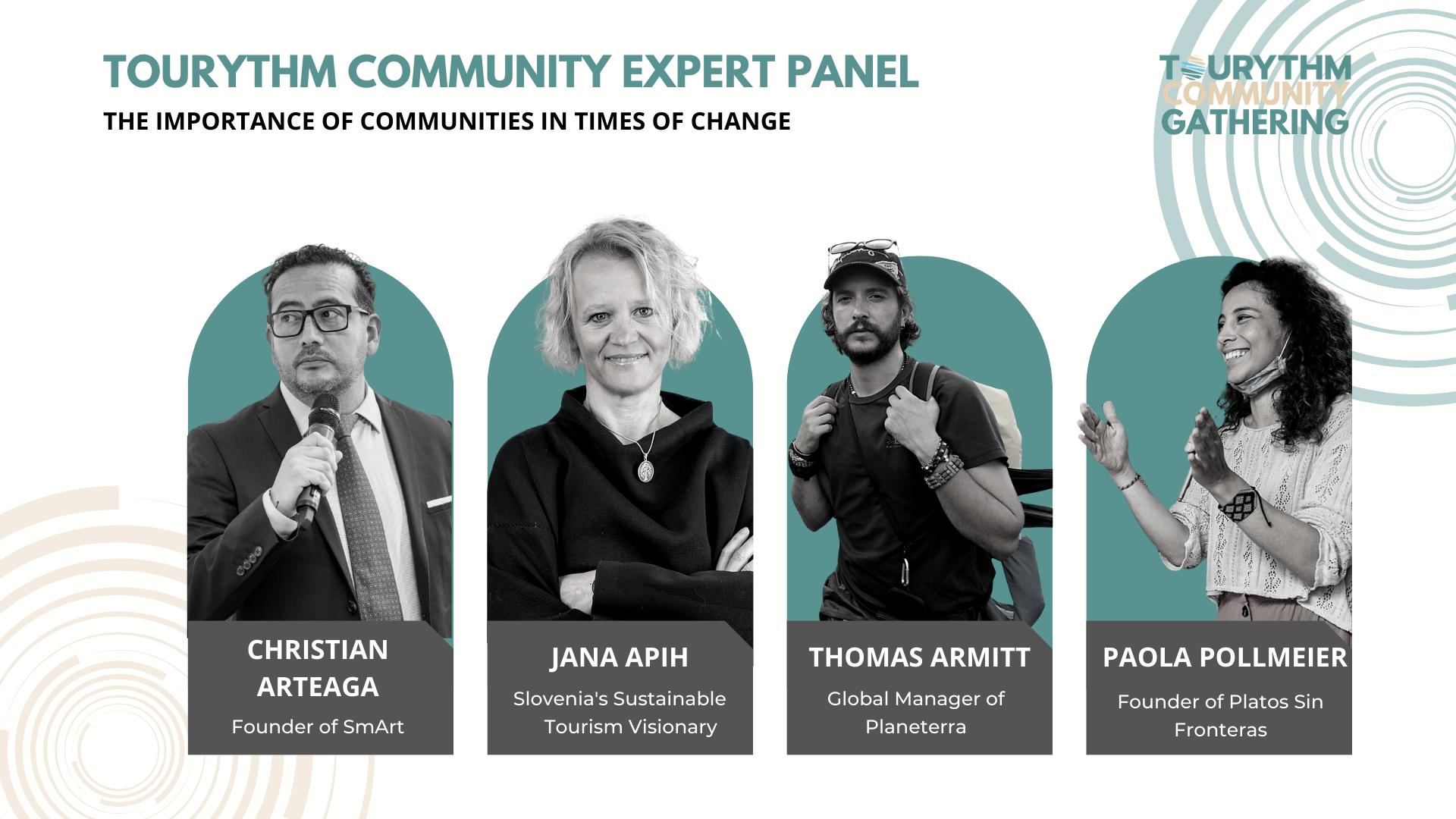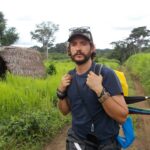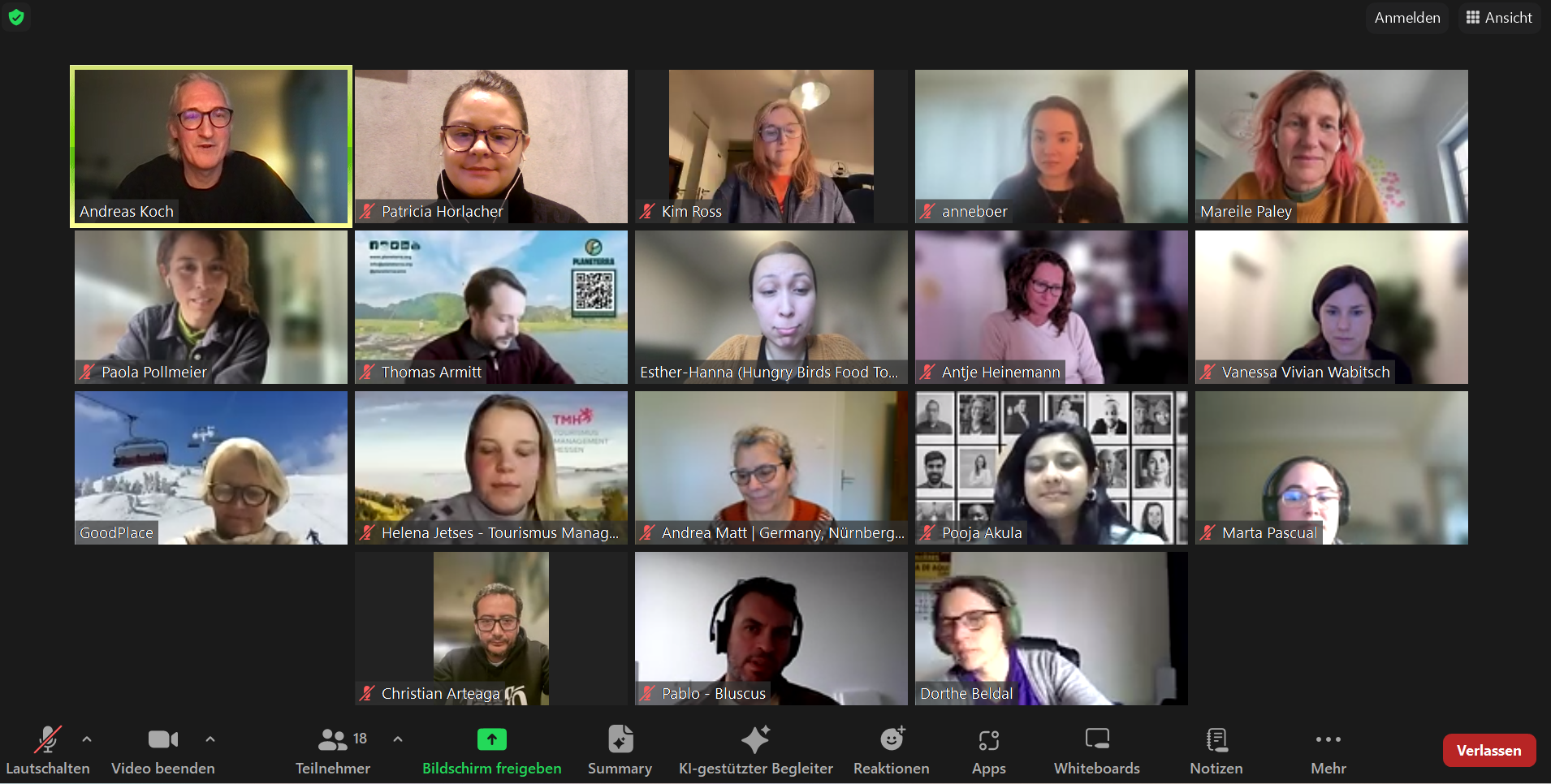Tourythm Community’s final gathering for 2023 was graced with an enlightening panel discussion featuring four distinguished community members: Christian Arteaga, Founder of SmArt; Jana Apih, Slovenia’s Sustainable Tourism Visionary; Thomas Armitt, the Global Manager of Planeterra; and Paola Pollmeier, the Founder of Platos Sin Fronteras. Under the adept moderation of Andreas Koch, the panel embarked on a captivating 30-minute firechat centered on “The Importance of Communities in Times of Change.” Drawing from their diverse experiences in community-based tourism, here are the insights shared by our esteemed panelists.


Jana emphasized that the cornerstone of sustainable tourism lay in meaningful stakeholder engagement. Through stakeholder mapping, she stressed the importance of understanding diverse perspectives to foster dialogues leading to enduring solutions. Additionally, Jana highlighted the challenge of translating sustainability principles from certified destinations to individual businesses and advocated for continuous collaboration across all levels. She also underscored the invaluable role communities played, especially during crises, offering insights and resilience. Ultimately, Jana’s perspective championed an inclusive approach to tourism, where communities were active contributors, guiding the sustainable evolution of their regions.

Thomas delved into the intricate dynamics of community-based tourism and its significance, especially amidst crises. He reflected on the divisive nature of crises, observing the rise of populist sentiments globally due to a search for answers. Drawing from his experience in West Africa, Thomas highlighted the richness of diversity within communities. Each member, from the village chief to the herbalist, brought unique skills and perspectives, contributing to a holistic community development approach. He emphasized the importance of communities not just as geographical entities but as groups united by a common vision. By bringing diverse communities together, he believed in fostering a networked model of development, addressing challenges collectively. He also underscored the dual-edged nature of social media: while it satisfied our longing for community, it could also amplify divisions. Ultimately, Thomas advocated for prioritizing togetherness over otherness, believing that unified communities could better navigate and overcome crises.

Christian’s journey through the secret valley of the Incas in Cusco, Peru, offered profound insights into the overlooked impact of tourism on indigenous communities. Observing the disparities faced by these communities due to geographic, political, and social factors, Christian was inspired to act. As a mestizo individual with a blend of Spanish and indigenous heritage, he valued the vast knowledge and wisdom embedded within these indigenous communities. Recognizing the need to bridge modern markets with indigenous territories, Christian’s initiative sought partnerships to uplift these communities economically. He emphasized the importance of recognizing and preserving the cultural heritage of indigenous communities, especially in the age of digitalization where their art and knowledge were at risk of being misappropriated. Christian advocated for tourism as a means to broaden our perspectives, appreciate cultural diversity, and recognize our shared responsibility towards the planet. Ultimately, he believed that embracing the wisdom of indigenous communities was crucial as we navigated the challenges of the modern world.

Paola’s journey with “Platos Sin Fronteras” (Plates Without Borders) began as a voluntary network aimed at sharing culinary and nutritional knowledge. The initiative connected chefs, nutritionists, and volunteers to exchange expertise, especially concerning the significance of healthy and natural foods. During the pandemic’s peak, this network showcased its resilience by ensuring food reached the most vulnerable. Paola emphasized that such community-driven efforts were vital, especially as societies faced increasing scarcities, be it water or food. The interconnectedness fostered by community initiatives not only addressed immediate challenges but also built a foundation for long-term resilience. Drawing from her experiences, Paola stressed the importance of fostering communities around shared purposes, as seen in her work with climate farmers. These initiatives not only provided resources for farmers transitioning towards sustainable practices but also addressed the emotional challenges, such as fear and isolation, by creating networks of support and shared learning. Ultimately, Paola underscored the value of community-building in navigating the complexities of a changing world.

Reflecting on “The Importance of Communities in Times of Change,” the conclusion of this insightful panel discussion had the entire community echoing some common words and thoughts. It’s evident that communities transcend the role of mere observers; they emerge as proactive catalysts. In these transformative times, their significance becomes even more pronounced. Through shared vision, unity, and purpose, communities are not only weathering the storms of change but are actively shaping the narrative. The panelists’ wisdom underscores that communities, with their resilience and collective spirit, are the driving force in navigating challenges and guiding us towards a harmonious and sustainable future.